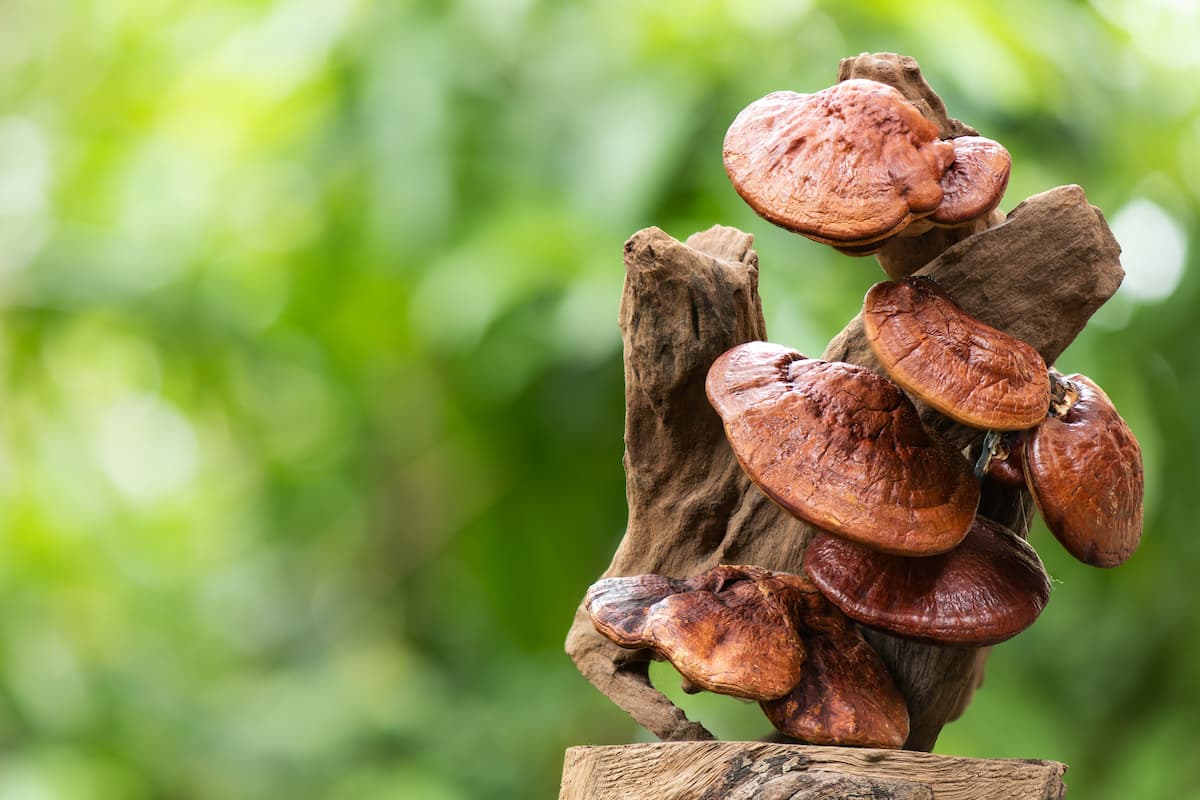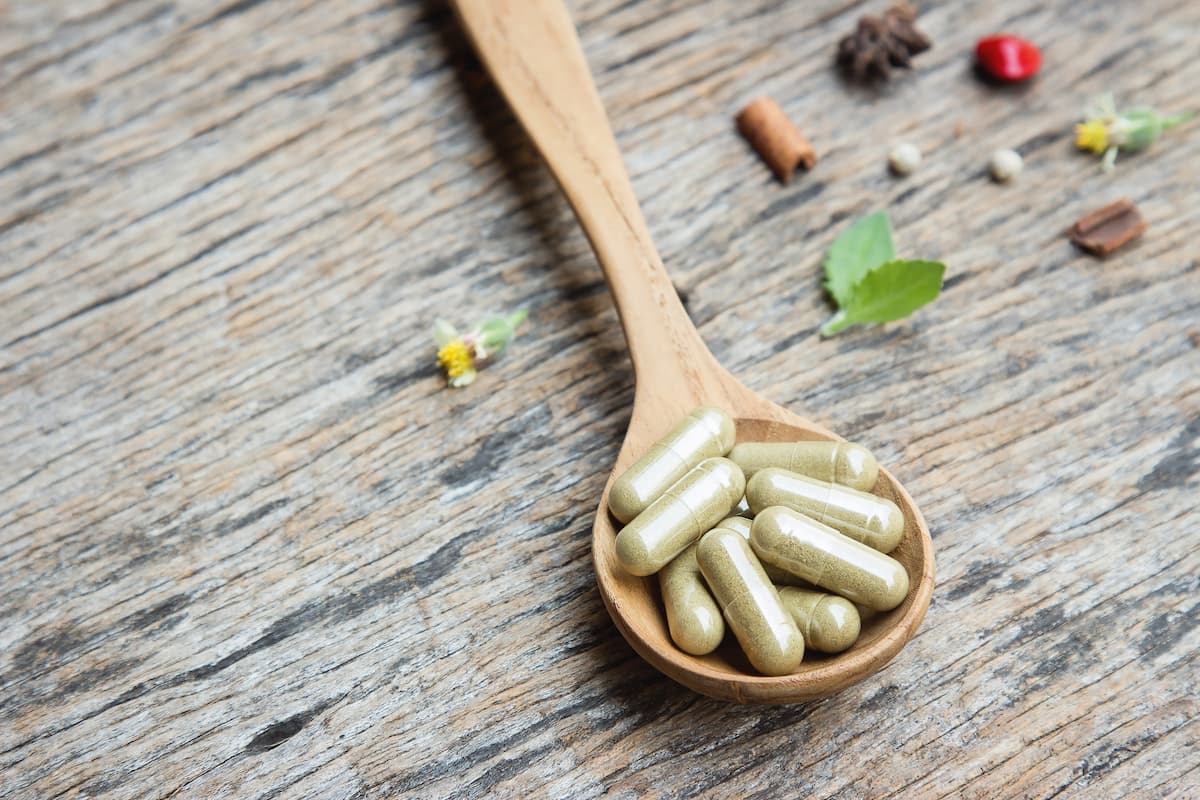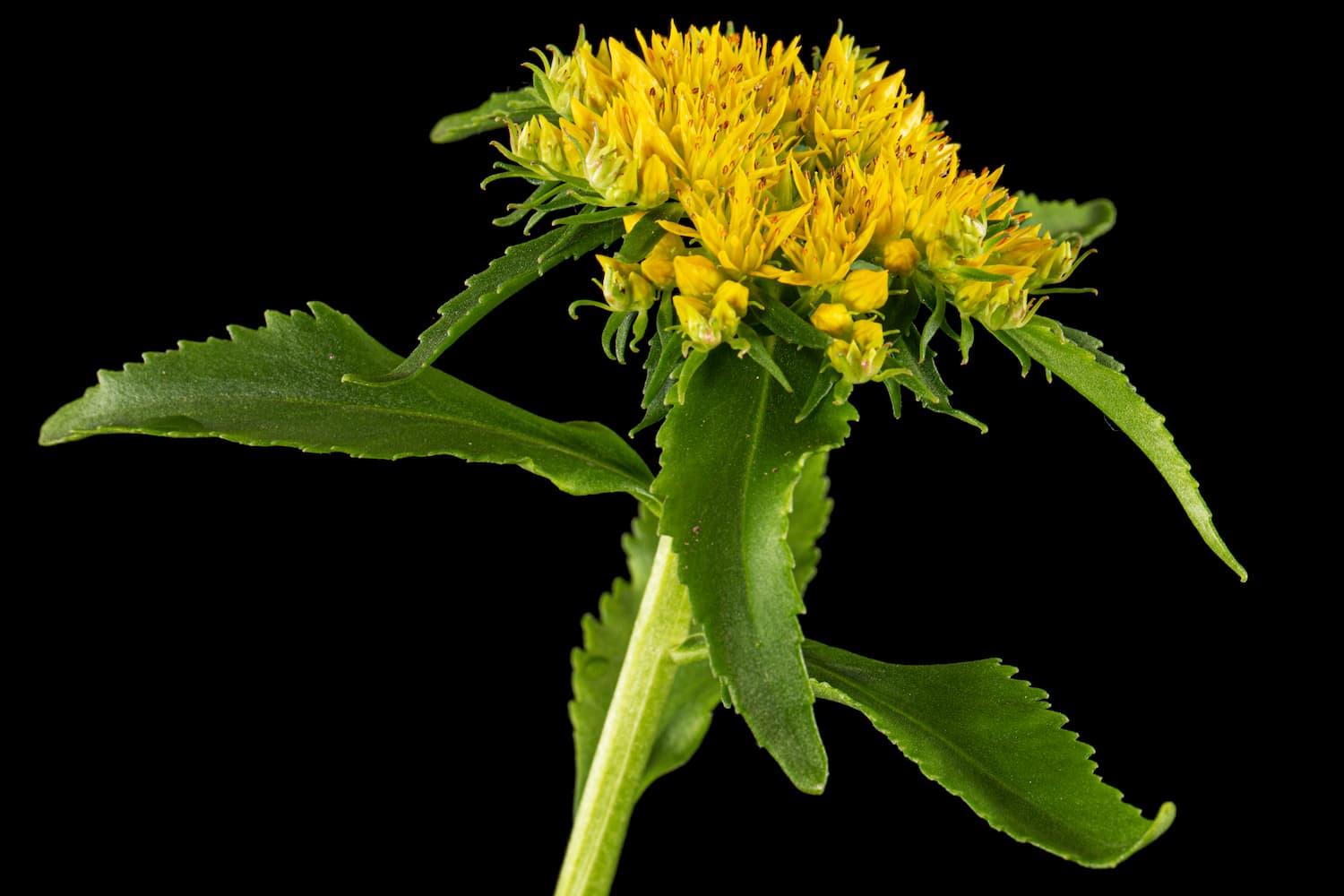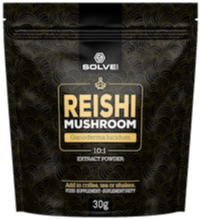Reishi mushroom - properties, contraindications, how to use
Reishi is a mushroom that has been used in Eastern medicine for thousands of years. Find out about its interesting properties.


Learn more about our editorial process
.

Learn more about our editorial process
.

Learn more about our editorial process
.

Learn more about our editorial process
.
Why you can trust us
Articles on Natu.Care are written based on scientific research, data from government websites and other reliable sources. The texts are written in cooperation with doctors, nutritionists and other health and beauty experts. Articles are reviewed before publication and during significant updates.
.Learn more about our editorial process
.Information about advertisements
Content on Natu.Care may contain links to products from the sale of which we may receive a commission. When creating content, we adhere to high editorial standards and take care to be objective about the products discussed. The presence of affiliate links is not dictated by our partners, and we select the products we review ourselves completely independently.
.Learn more about our terms and Conditions
.A few thousand years ago, someone saw a piece of a not-so-beautiful mushroom on a rotten tree and thought: maybe...help me? I've probably simplified the story, but someone was right - it did.
And so the reishi mushroom, it may not be too beautiful, but it is still very useful in Eastern medicine today. You can ingest reishi, drink it, even lubricate yourself with it and... brush your teeth with it. Only, does it really do anything? I've checked what scientific studies and experts say.
From this article you will learn:
- What reishi mushrooms are. .
- What properties they have. .
- How to choose the best reishi products. .
- Who can use reishi, how much and for how long. .
See also:
- Adaptogens
- Cordyceps
- Lion's Mane
- Cordyceps
- Lion's Mane
- Ashwagandha
- Macrophylla
- Caffeine
- Indian ginseng
Reishi mushroom - what is it?
.Reishi is a species of fungus in the lacewing family. They are also known as laceworm (Latin Ganoderma lucidum) and lingzhi (Chinese for "divine mushroom"). There are six varieties of these fungi: red, white, blue, yellow, black and purple. The red variety is the best studied and probably the most valuable for healthand.
Reishi grows on every continent (except Antarctica). It is very rare in Poland and is on the list of potentially endangered species . The best conditions for this fungus are high humidity and temperature. In the wild, reishi grows on trees (often rotting trees) where it can colonise the wood and produce mycelium .
The Japanese name for reishi is mannetake, meaning 'mushroom of 10,000 years', and the Korean name is yeongji, which can be translated as 'divine mushroom' .
Reishi contains valuable ingredients such asand:
.- magnesium, .
- zinc, .
- manganese, .
- copper, .
- germanium, .
- B vitamins, .
- amino acids, .
- polysaccharide compounds, e.g. alpha- and beta-glucans, coumarins and alkaloids, .
- steroidal components, e.g. ganoderic acid, .
The properties of these substances mean that reishi can have a positive effect on health and wellbeing. This mushroom is an adaptogen, i.e. it has properties that influence the stabilisation of physiological processes and promote the body's homeostasisand.
Is reishi a hallucinogen?
.No, reishi species mushrooms are not hallucinogenic because they do not contain psychoactive substances.
Divine mushroom
.Reishi have been used in Eastern medicine for several thousand years. This type of mushroom was believed to have magical properties. It was attributed with success, wellbeing, divine power and longevityand.
Every ruler wanted to have reishi in his treasury, and poets wrote poems about it . Talismans are still made from reishi in Asia to protect against diseaseand.
Reishi - properties
.The reishi mushroom has adaptogenic properties, meaning it can reduce the negative effects of stress and adverse external conditions on the body. It can also have a positive effect on immunity, reduce fatigue and improve cardiovascular health. It also exhibits antioxidant effects.
Unfortunately, despite the fact that reishi has been used for thousands of years in Eastern medicine, we cannot say that this mushroom has health-promoting properties for humans. There are too few scientific studies involving humans to confirm these assumptions.
There are not many studies, they are of varying quality, sometimes they are from a decade ago, and some have been carried out on animals - keep this in mind when reading about reishi.
Reishi potentially:
Promotes immunity
.Will reishi displace classic milk with honey and garlic for immunity? Studies on samples have shown that reishi can affect genes in white blood cells, which are important components of the immune system. Researchers verified under a microscope that certain forms of this fungus can alter inflammatory pathways in themand.
In a 2006 study, 47 patients with colorectal cancer took 5.4g of reishi extract daily for three months. The results showed that the mushroom could increase white blood cell counts in patientsand.
White blood cells, or leukocytes, are an essential component of the immune system. They are the sentinels on the front line in the fight against microorganisms..
 .
.
Ilona Krzak Master of Pharmacy
In another 2007 study, fungus improved lymphocyte function in 40 football players exposed to stressful conditions. Lymphocytes also help fight infection and are an important part of the body's immune shieldand.
Lymphocytes recognise and present the antigen of a pathogen to other cells; thanks to them, the body knows who the 'enemy' is. They have the ability to produce antibodies and are able to suppress the immune response of the immune system, e.g. they protect the foetus from autoimmunity on the part of the mother - without them the woman's body would "read" the foetus as an intruder to be fought..
 .
.
Ilona Krzak Master of Pharmacy
Further research is needed, however, as some work to date has shown no effect of reishi extract on immune function or inflammationand. Well, and reishi doesn't beat the taste of milk with honey and garlic.
Reduces fatigue and improves mood
.One 2005 study examined the effect of reishi on reducing fatigue in 132 people with neurasthenia. This is a neurotic disorder manifested by a constant feeling of fatigue, nervousness, dizziness and headaches and irritabilityand.
For eight weeks, patients divided into two groups took 1800 mg of reishi extract or placebo three times a day. The group consuming the mushroom reported reduced feelings of fatigue and improved wellbeing after two months of consumptionand.
Another 2012 study of breast cancer patients found that taking reishi powder reduced fatigue, anxiety and depression and improved quality of life after four weeks of use .
.Reishi may hold promise for people struggling with certain illnesses, but it is unclear whether its consumption benefits healthy individuals.
Shows anti-cancer potential
.Several in vitro studies conducted between 2020 and 2022 have shown that reishi can lead to cancer cell deathand.
Ganoderma lucidum have a broad spectrum of inhibitory effects on various cancers, including oral mucosal cancer, prostate cancer cells and liver cancer..
 .
.
Ilona Krzak Master of Pharmacy
One review of studies has shown that the mushroom can benefit the health and wellbeing of cancer patients when used in parallel with traditional treatment, increasing white blood cell activity and improving quality of lifeand.
Reishi is able to activate NK (Natural Killer) 'natural killer' cells, which are important components of immunity, increasing their activity and the body's ability to fight cancer . Consuming reishi may reduce the chances of metastasis, or the spread of cancer to another part of the body.
Antioxidant effects
.Antioxidants are molecules that protect cells from harmful oxidative stress, prevent the development of disease and delay the body's ageing process. Reishi can support their health benefitsand.
Antioxidants can reduce inflammation in the body, which lowers the risk of many chronic diseases. Their regular consumption can prevent heart disease, type 2 diabetes or cancer..
 .
.
Ilona Krzak Master of Pharmacy
Provides support for the cardiovascular system
.Research shows that reishi canand:
- .
- lower blood sugar concentrations, .
- increase the concentration of HDL - the "good" cholesterol, .
- lower the concentration of triglycerides, .
The mushroom's potential in this aspect has been confirmed in both normal and unhealthy blood sugarsand.
Other animal and human studies also suggest that certain compounds found in the reishi mushroom may lower blood sugar levels .
Stress, unhealthy food and often low physical activity promote the development of cardiovascular disease. Currently, around 20 million Poles have excessively high cholesterol..
 .
.
Aleksandra Cudna-Bartnicka Clinical nutritionist
There are, however, studies that have shown no effect of consuming reishi on cholesterol, triglycerides or blood sugar levels. Will it help you? You'll have to find out for yourself - it's best to test your blood before and after consuming reishi.
Promotes skin health
.Cosmetics with reishi are available on the market - hair conditioners and shampoos, creams or lotions. Several studies have shown that the use of these cosmetics can have a moisturising, anti-ageing effect, promote skin regeneration and brighten the skinand.
Reishi is also an ingredient in hair conditioners and shampoos, facial cheeses and creams, and even... toothpaste. It is credited with anti-ageing, soothing and water-binding properties in the skinand.
Other potential benefits
. .- .
- inhibit the growth of gram-positive and gram-negative bacteria, .
- protect the liver, .
- act as an antifungal and antiviral agent, .
- promote muscle recovery after intense exercise, .
- act as an anti-inflammatory, .
These are conclusions from single studies or animal studies, so they should be approached with caution.
And in China...
.Reishi is officially approved for the treatment of dizziness, insomnia, palpitations, shortness of breath, cough and asthmaand.
Reishi - dosage
.The dosage of reishi depends on the purpose of use and is usually 1.4-5.2 g of extract per day. From 3 g upwards, it is advisable to spread the intake over 2 or 3 servings per day. A safe duration of use is 4 weeks, after which it is recommended to take a break for 1-2 weeksand.
How long to use reishi mushroom?
.The safest way to take reishi mushroom is for 4 weeks, after which consumption is discontinued for 1-2 weeks. Scientific studies with reishi have typically lasted between 2 and 12 weeks, but the effects of long-term reishi intake are not yet well understoodand.
What reishi to buy?
.Reishi products are available in a variety of forms, such as powders, dietary supplements, coffee and tea. They are made from different parts of the mushroom, including the mycelium, spores and fruiting bodies. The best choice would be a standardised extract, preferably with a stated DER (Drug Extract Ratio).
Standardisation indicates whether and in what quantity the active ingredient is present in a product. Standardised extracts are best. DER, on the other hand, indicates how much of the raw material the extract was obtained from. For example, a DER of 9:1 means that 9 g of a given raw material yields 1 g of extract. A higher DER means a better product..
 .
.
Witold Tomaszewskidoctor of medical sciences
Extract is a dehydrated mushroom powder, making it about 10 times more potent than the raw mushroom. This means that 5g of extract acts like 50g of whole mushroomand.
74% of reishi products in the US... are hay
.In a 2016 US study conducted in collaboration with the US Pharmacopeia (USP), which sets standards for pharmaceuticals, food ingredients and dietary supplements, 19 different reishi supplements were tested.
The bioactive ingredients found in each product were compared with those found in the reishi mushroom itself. The results of the study showed that only 5 out of 19 samples (26%) actually contained what was claimed on the reishi product labeland.
.
How is it in Poland? Unfortunately there is no such research, so all the more reason to choose extracts over powdered mushrooms. Also pay attention to the DER - even if it is not too high, it is still a big plus for the manufacturer to provide this information.
REISHI, the fungus Yellow-lipped Lacewing
Product description
After a challenging day, Reishi is perfect as a relaxing evening tonic. It pairs perfectly with hot cocoa or tea.
Reishi has a broad spectrum of beneficial vitamins, mineralsós, polysaccharidesós including beta-D-glucans, nucleotides, triterpenes including ganoderic acids (A-G), sterols, lactates, glycoproteins.
Lion’s Mane is one of the most important mushrooms’s used for centuries’s in the far East. It is valued for its health-promoting properties, including cardiovascular support, lowering cholesterol and maintaining adequate immunity.
Pros and cons
After a challenging day, Reishi is perfect as a relaxing evening tonic. It pairs perfectly with hot cocoa or tea.
Reishi has a broad spectrum of beneficial vitamins, mineralsós, polysaccharidesós including beta-D-glucans, nucleotides, triterpenes including ganoderic acids (A-G), sterols, lactates, glycoproteins.
Lion’s Mane is one of the most important mushrooms’s used for centuries’s in the far East. It is valued for its health-promoting properties, including cardiovascular support, lowering cholesterol and maintaining adequate immunity.
Additional information
After a challenging day, Reishi is perfect as a relaxing evening tonic. It pairs perfectly with hot cocoa or tea.
Reishi has a broad spectrum of beneficial vitamins, mineralsós, polysaccharidesós including beta-D-glucans, nucleotides, triterpenes including ganoderic acids (A-G), sterols, lactates, glycoproteins.
Lion’s Mane is one of the most important mushrooms’s used for centuries’s in the far East. It is valued for its health-promoting properties, including cardiovascular support, lowering cholesterol and maintaining adequate immunity.
User review
After a challenging day, Reishi is perfect as a relaxing evening tonic. It pairs perfectly with hot cocoa or tea.
Reishi has a broad spectrum of beneficial vitamins, mineralsós, polysaccharidesós including beta-D-glucans, nucleotides, triterpenes including ganoderic acids (A-G), sterols, lactates, glycoproteins.
Lion’s Mane is one of the most important mushrooms’s used for centuries’s in the far East. It is valued for its health-promoting properties, including cardiovascular support, lowering cholesterol and maintaining adequate immunity.
Contraindications
.Contraindications to the use of reishi areand:
- .
- pregnancy, .
- lactation, .
- age under 18 years old,
- use of immunosuppressants,
- use of immunosuppressants or anticoagulants, .
- planned surgery or period of convalescence, .
- cardiovascular diseases, e.g. hypertension, .
- gastrointestinal disorders (diarrhoea, indigestion, nausea), .
- headaches and dizziness,
- diarrhoea, and dizziness.
- rash, .
- itching of the skin, .
- Reishi is a genus of adaptogenic mushrooms that show potential to support health and well-being.
- They have been used in Eastern medicine for several thousand years, and in China reishi is officially approved as a medicine for various diseases.
- Research on reishi shows that the mushroom can support immunity, positively affect mood, reduce fatigue and support cardiovascular function. It is also an antioxidant and may improve the condition of the skin.
- It is recommended to take 1.4-5.2g of the extract daily for 4 weeks and then take a break for 1-2 weeks. .
- Contraindications for the use of reishi include pregnancy, lactation, minors, use of medications that affect blood clotting and immunosuppressants, and planned surgery. .
- Side effects usually occur due to excessive consumption or allergies. .
- .
The use of reishi may increase the risk of bleeding, so discontinue preparations with this fungus at least 2 weeks before any planned surgery.
.. .
Ilona Krzak Master of Pharmacy
Side effects
.Side effects of taking reishiand:
Side effects usually occur with excessive and prolonged use of reishi preparations. They should subside once the mushrooms are discontinued. Remember, it is advisable to take a 1-2 week break after 4 weeks of consuming this mushroom.
Some scientific studies have shown that people taking reishi mushrooms for four months were twice as likely to experience side effects as those taking placeboand.
.Does reishi harm the liver?
.Some scientific studies have shown that taking reishi mushroom extract for four weeks had no harmful effects on the liver or kidneys in healthy adults .
.On the other hand, in other studies, participants experienced liver problems after taking reishi . Because other factors were involved, it is difficult to determine whether the fungus itself was responsible for the observed liver damage.
Be cautious - if you have liver problems, consult your doctor before consuming reishi preparations.
See also:
Reishi - doctors' opinions
.Doctors' opinions on reishi are extreme. While in China, reishi is prescribed on a daily basis for treatment in hospitals, in Poland, doctors tend to approach it with caution.
While searching for information about reishi, I found many desperate people who have "failed the National Health Service" and "have to help themselves". Unfortunately, these people often abandon conventional treatment and rely on scientifically unproven treatments. And dishonest supplement manufacturers profit from this desperation by touting the anti-cancer potential of miracle reishi.
How is it that in "China they take it, but in Poland they get defensive?" I asked medical doctor Witold Tomaszewski for his opinion.
Asia as culturally, is also medically different from us. Their medicine is over 5,000 years of tradition and experience - sometimes factual, sometimes customary. It may also be a matter of a different metabolism of ethnicity. Currently, the use of reishi is a bit of an experiment. There is a lack of strong evidence for the effects of this mushroom..
 .
.
Witold Tomaszewskidoctor of medical sciences
And what do the 'mushroom people' say?
.I personally know fans of adaptogenic mushrooms and have looked through various forums and thematic groups. As always - there are two sides to the coin (and indeed the mushroom). What experience do others have with reishi?
."I like to drink coffees and chocolates with reishi in winter. I've been drinking them in season for several years now and I get less sick. I can better withstand the fast-approaching darkness outside the window and the weather doesn't hit me as much as it used to."
"I love reishi.
"I love reishi because it makes me feel better and it flavourfully spikes my various drinks. I love the distinctive taste!"
."Not only do I drink reishi, but I also buy natural cosmetics with it, e.g. the cream has moisturised my skin nicely. I also have toothpaste and face serum. They say I've gone mad, but I ... have mushroomed!"
."It doesn't work. I drank it for a fortnight and nothing worked, and I took it due to exhaustion, stress and poor sleep. Like a placebo for me."
"I don't know how you can drink this, hideous aftertaste like I'm drinking earth with water".
.And finally my favourite:
"What are you guys talking about, only POLISH PEEK, not some fancy stuff!!!"
.Summary
.FAQ
.Can you overdose on reishi mushrooms?
.Overdosing on reishi and taking it for a long time can negatively affect health. With excessive amounts, unpleasant side effects occur and it can even lead to damage to the liver.
Why children must not consume reishi?
.There are not enough studies to confirm the safety and efficacy of reishi in people under 18 years of age. It is strongly recommended that a paediatrician or paediatric nutritionist be consulted before introducing any dietary supplements, whether for children or young people under 18 years of age.
What is the world's healthiest mushroom?
.There is no single healthiest mushroom in the world, as many mushrooms show beneficial health properties. Recommended mushrooms that have positive health benefits include oyster mushrooms, boletes, mushrooms, chanterelles, reishi, black truffles and maitake.
Is it possible to grow reishi?
.Yes, reishi mushrooms can be grown under artificial conditions and it is legal to do so. There are many methods to grow reishi, including using plywood, straw, wood substrates, etc. Many tutorials and guides can be found online to help you get started growing.
Does reishi slim down?
.No, reishi does not slim down. There is no scientific evidence to suggest that the reishi mushroom reduces weight or promotes weight loss. However, some studies suggest that reishi may indirectly affect weight by improving some health indicators associated with weight loss, such as lowering blood cholesterol.
What do reishi mushrooms look like?
.Rishi mushrooms have a disc-shaped shape and their caps can reach up to 20 cm in diameter. Their surface is characteristically glossy, as if lacquered. They come in several colour varieties.
Can reishi be eaten raw?
.It is not recommended to eat reishi raw. In this form, it is difficult to digest and can be bitter to the taste. In order to benefit from its health benefits, it is recommended that it is properly processed before consumption or taken from preparations.
Sources
.See all
.Ali, S. S., Ahsan, H., Zia, M. K., Siddiqui, T., & Khan, F. H. (2020). Understanding oxidants and antioxidants: Classical team with new players. Journal of Food Biochemistry, 44(3), e13145. https://doi.org/10.1111/jfbc.13145
Bhola, P., & Chaturvedi, S. K. (2020). Neurasthenia: Tracing the journey of a protean malady. International Review of Psychiatry (Abingdon, England), 32(5-6), 491-499. https://doi.org/10.1080/09540261.2020.1758638
Chen, X., Hu, Z.-P., Yang, X.-X., Huang, M., Gao, Y., Tang, W., Chan, S. Y., Dai, X., Ye, J., Ho, P. C.-L., Duan, W., Yang, H.-Y., Zhu, Y.-Z., & Zhou, S.-F. (2006). Monitoring of immune responses to a herbal immuno-modulator in patients with advanced colorectal cancer. International Immunopharmacology, 6(3), 499-508. https://doi.org/10.1016/j.intimp.2005.08.026
Cheng, C.-H., Leung, A. Y., & Chen, C.-F. (2010). The effects of two different ganoderma species (Lingzhi) on gene expression in human monocytic THP-1 cells. Nutrition and Cancer, 62(5), 648-658. https://doi.org/10.1080/01635581003605516
Chu, T. T. W., Benzie, I. F. F., Lam, C. W. K., Fok, B. S. P., Lee, K. K. C., & Tomlinson, B. (2012). Study of potential cardioprotective effects of Ganoderma lucidum (Lingzhi): Results of a controlled human intervention trial. The British Journal of Nutrition, 107(7), 1017-1027. https://doi.org/10.1017/S0007114511003795
El Sheikha, A. F. (2022). Nutritional Profile and Health Benefits of Ganoderma lucidum "Lingzhi, Reishi, or Mannentake" as Functional Foods: Current Scenario and Future Perspectives. Foods (Basel, Switzerland), 11(7), 1030. https://doi.org/10.3390/foods11071030
Gao, Y., Zhou, S., Jiang, W., Huang, M., & Dai, X. (2003). Effects of ganopoly (a Ganoderma lucidum polysaccharide extract) on the immune functions in advanced-stage cancer patients. Immunological Investigations, 32(3), 201-215. https://doi.org/10.1081/imm-120022979
Hormozi, M., Ghoreishi, S., & Baharvand, P. (2019). Astaxanthin induces apoptosis and increases activity of antioxidant enzymes in LS-180 cells. Artificial Cells, Nanomedicine, and Biotechnology, 47(1), 891-895. https://doi.org/10.1080/21691401.2019.1580286
Jiao, C., Chen, W., Tan, X., Liang, H., Li, J., Yun, H., He, C., Chen, J., Ma, X., Xie, Y., & Yang, B. B. (2020). Ganoderma lucidum spore oil induces apoptosis of breast cancer cells in vitro and in vivo by activating caspase-3 and caspase-9. Journal of Ethnopharmacology, 247, 112256. https://doi.org/10.1016/j.jep.2019.112256
Jin, H., Song, C., Zhao, Z., & Zhou, G. (2020). Ganoderma Lucidum Polysaccharide, an Extract from Ganoderma Lucidum, Exerts Suppressive Effect on Cervical Cancer Cell Malignancy through Mitigating Epithelial-Mesenchymal and JAK/STAT5 Signaling Pathway. Pharmacology, 105(7-8), 461-470. https://doi.org/10.1159/000505461
Jin, X., Ruiz Beguerie, J., Sze, D. M.-Y., & Chan, G. C. F. (2016). Ganoderma lucidum (Reishi mushroom) for cancer treatment. The Cochrane Database of Systematic Reviews, 4(4), CD007731. https://doi.org/10.1002/14651858.CD007731.pub3
Liu, Q., & Tie, L. (2019). Preventive and Therapeutic Effect of Ganoderma (Lingzhi) on Diabetes. Advances in Experimental Medicine and Biology, 1182, 201-215. https://doi.org/10.1007/978-981-32-9421-9_8
Pan, R., Lou, J., & Wei, L. (2021). Significant effects of Ganoderma lucidum polysaccharide on lipid metabolism in diabetes may be associated with the activation of the FAM3C-HSF1-CAM signaling pathway. Experimental and Therapeutic Medicine, 22(2), 820. https://doi.org/10.3892/etm.2021.10252
Pascale, C., Sirbu, R., & Cadar, E. (2023). Therapeutical Properties of Bioactive Compounds Extracted from Species on Acute and Chronic Diseases. European Journal of Natural Sciences and Medicine, 6(1), 75-88. https://doi.org/10.2478/ejnsm-2023-0008
Rani, P., Lal, M. R., Maheshwari, U., & Krishnan, S. (2015). Antioxidant Potential of Lingzhi or Reishi Medicinal Mushroom, Ganoderma lucidum (Higher Basidiomycetes) Cultivated on Artocarpus heterophyllus Sawdust Substrate in India. International Journal of Medicinal Mushrooms, 17(12), 1171-1177. https://doi.org/10.1615/intjmedmushrooms.v17.i12.70
Roy, S., Jahan, M. A. A., Das, K. K., Munshi, S. K., & Noor, R. (2015). Artificial Cultivation of Ganoderma lucidum (Reishi Medicinal Mushroom) Using Different Sawdusts as Substrates. American Journal of BioScience, 3(5), Article 5. https://doi.org/10.11648/j.ajbio.20150305.13
Sauls, R. S., McCausland, C., & Taylor, B. N. (2023). Histology, T-Cell Lymphocyte. In StatPearls. StatPearls Publishing. http://www.ncbi.nlm.nih.gov/books/NBK535433/
.Siwulski, M., Sobieralski, K., Golak-Siwulska, I., Sokol, S., & Sękara, A. (2015). (Curt.: Fr.) Karst. - Health-promoting properties. A review. Herba Polonica, 61(3), 105-118. https://doi.org/10.1515/hepo-2015-0026
Suárez-Arroyo, I. J., Acevedo-Díaz, A., Ríos-Fuller, T. J., Ortiz-Soto, G., Vallejo-Calzada, R., Reyes-Chea, J., Maldonado-Martínez, G., Schneider, R. J., & Martínez-Montemayor, M. M. (2022). Ganoderma lucidum enhances carboplatin chemotherapy effect by inhibiting the DNA damage response pathway and stemness. American Journal of Cancer Research, 12(3), 1282-1294.
.Wachtel-Galor, S., Tomlinson, B., & Benzie, I. F. F. (2004). Ganoderma lucidum ("Lingzhi"), a Chinese medicinal mushroom: Biomarker responses in a controlled human supplementation study. The British Journal of Nutrition, 91(2), 263-269. https://doi.org/10.1079/BJN20041039
Wachtel-Galor, S., Yuen, J., Buswell, J. A., & Benzie, I. F. F. (2011). Ganoderma lucidum (Lingzhi or Reishi): A Medicinal Mushroom. IN I. F. F. Benzie & S. Wachtel-Galor (Eds.), Herbal Medicine: Biomolecular and Clinical Aspects (2nd ed.). CRC Press/Taylor & Francis. http://www.ncbi.nlm.nih.gov/books/NBK92757/
Wang, X., & Lin, Z. (2019). Immunomodulating Effect of Ganoderma (Lingzhi) and Possible Mechanism. Advances in Experimental Medicine and Biology, 1182, 1-37. https://doi.org/10.1007/978-981-32-9421-9_1
Wu, D.-T., Deng, Y., Chen, L.-X., Zhao, J., Bzhelyansky, A., & Li, S.-P. (2017). Evaluation on quality consistency of Ganoderma lucidum dietary supplements collected in the United States. Scientific Reports, 7(1), Article 1. https://doi.org/10.1038/s41598-017-06336-3
Zhang, Y., Lin, Z., Hu, Y., & Wang, F. (2008). Effect of Ganoderma lucidum capsules on T lymphocyte subsets in football players on "living high-training low". British Journal of Sports Medicine, 42(10), 819-822. https://doi.org/10.1136/bjsm.2007.038620
Zhao, H., Zhang, Q., Zhao, L., Huang, X., Wang, J., & Kang, X. (2012). Spore Powder of Ganoderma lucidum Improves Cancer-Related Fatigue in Breast Cancer Patients Undergoing Endocrine Therapy: A Pilot Clinical Trial. Evidence-Based Complementary and Alternative Medicine: ECAM, 2012, 809614. https://doi.org/10.1155/2012/809614
Editorials
Meet the team

Ilona Krzak obtained her Master of Pharmacy degree from the Medical University of Wrocław. She did her internship in a hospital pharmacy and in the pharmaceutical industry. She is currently working in the profession and also runs an educational profile on Instagram: @pani_z_apteki


Ashwagandha affects thyroid hormone levels. Find out if you can use it.

See how mountain pintail can affect your wellbeing.

Check out the opinions of doctors and other professionals about ashwagandha. Also find out what people on the forum think about it.

